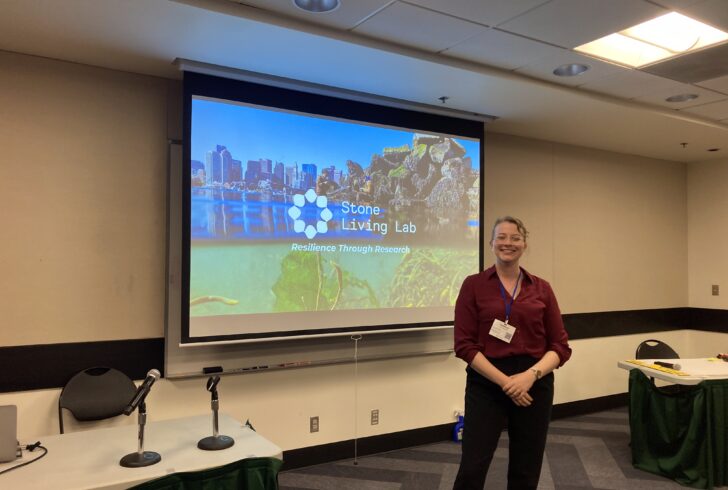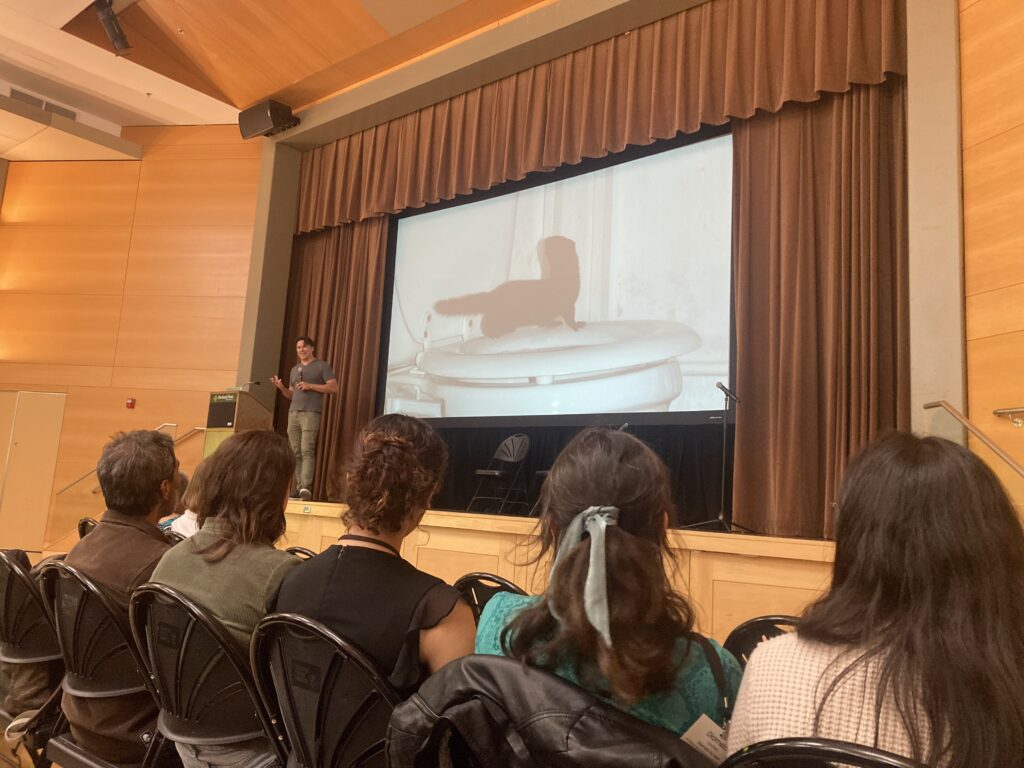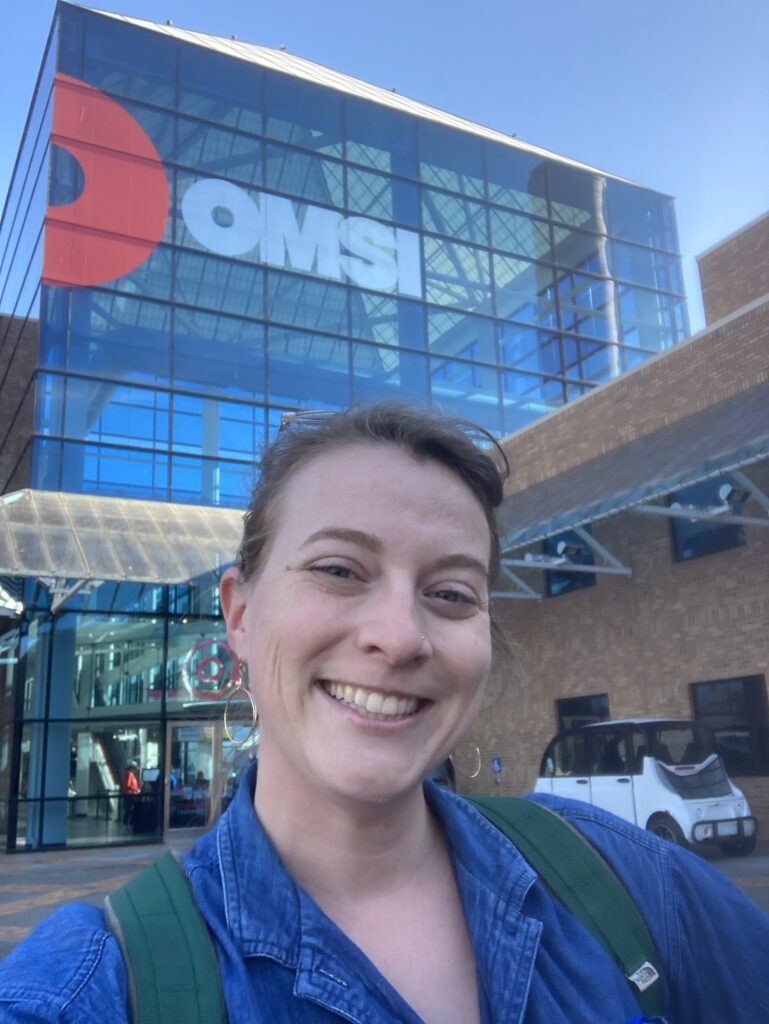Reflections on the Conference on Advancing Participatory Sciences


by Rebecca Shoer
This May, I was thrilled to attend and present at my first in-person session of the Conference on Advancing Participatory Sciences. Hosted by the Association for Advancing Participatory Sciences, this conference brings together practitioners and researchers from around the globe, all focused on the participatory sciences. Rather than being confined to a single scientific discipline, like oceanography or ecology, this conference instead highlights any research that is done by, for, and with members of the public. The community centers residents and communities as integral members of any scientific question, rather than as just subjects of or tools to be utilized by scientists.
This year’s conference took place in Portland, Oregon, a city with a long history of counter-culture and creativity. I joined the conference not only to learn, but also to share about our innovative Summer Teacher Institute, and how public school teachers can be best introduced to and supported in implementing participatory science protocols in their schools.
Many of the sessions and posters for this conference centered on justice – how participatory sciences can address environmental injustices, empower communities to become local advocates, and how scientific protocols can be paired with cultural healing.
Organizers shared success stories and lessons learned, best practices for equitable engagement, and addressing the biases still rampant in academia against “non-expert” data. A common refrain heard was about projects whose funding had been suddenly cut by the current US federal government for being considered “non-essential,” or because they centered on justice and equity. This community, however, is a deeply creative and mission-driven one – every project team facing funding challenges was adamant that their work would continue, regardless.

iNaturalist Executive Director Scott Loarie spoke about the history and development of iNaturalist. Highlighted here is the notorious “toilet weasel” – the first photograph in history of the Colombian Weasel, captured by an iNat user. https://www.inaturalist.org/blog/20273-the-elusive-colombian-weasel-observation-of-the-week-12-9-18
This conference was deeply inspirational, both personally and professionally. I relished the time spent meeting and bonding with fellow participatory science fanatics, be it playing at the Oregon Museum of Science and Industry at the conference social hour, or discussing how to rebuild connections between young people and their natural world. I went to CAPS not only to share about the Lab’s work, but to find inspiration for how the Lab can support the expansion of participatory sciences being done in Boston Harbor. As my team enters the throes of summer programming, my brain will be hard at work, looking for the perfect participatory science opportunities!

Rebecca Shoer, Senior Program Manager, Education and Engagement